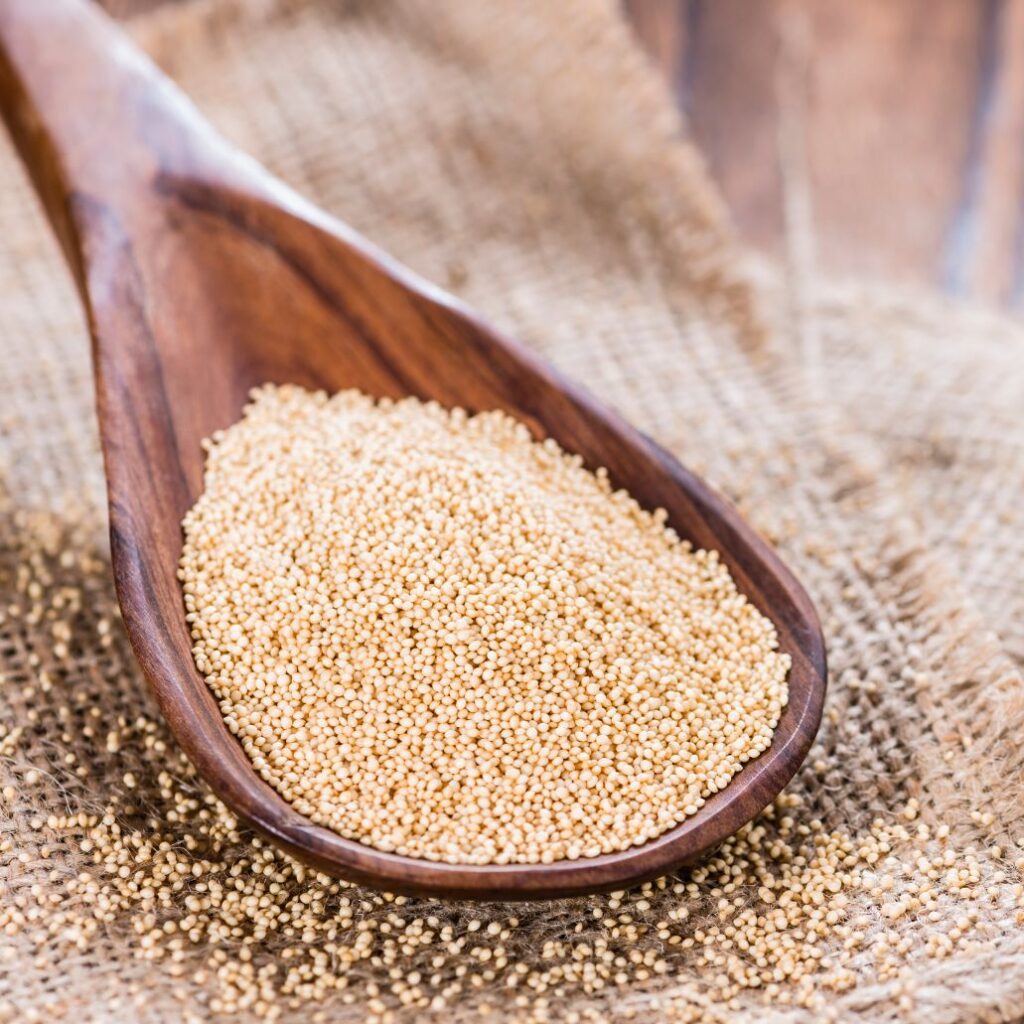Have you heard of amaranth? It’s a tiny yet mighty grain that has been gaining popularity in recent years due to its impressive nutritional profile. Amaranth is an ancient grain that has been gaining popularity in recent years due to its impressive nutritional profile. As a nutritionalist, I want to break down some of the key health benefits of amaranth and explain why it deserves a place in your diet.
Amaranth is High in Protein and Dietary Fiber
One of the biggest health benefits of amaranth is its high protein content. Amaranth contains a significant amount of protein and fiber, which both aid in feeling full and maintaining balanced blood sugar. Unlike true grains, amaranth is a complete protein, meaning it contains all essential amino acids that our bodies cannot produce. Furthermore,
According to the USDA ↗, 1 cup of cooked amaranth contains:
- 8 grams of protein
- 5.8 grams of fiber
This amount of protein and fiber is more than brown rice or quinoa. The fiber in amaranth helps maintain healthy cholesterol levels and aids in digestion.
It’s High in Minerals Like Iron, Magnesium, and Calcium
In addition to protein, amaranth also provides an array of vital minerals and nutrients. The health benefits of amaranth include high amounts of iron, magnesium, calcium, potassium, phosphorus, zinc and more.
A 100 gram serving of amaranth contains:
- 29% of your daily iron needs – Iron helps transport oxygen and supports a healthy immune system
- 40% of your daily magnesium needs – Magnesium is involved in over 300 biochemical reactions in the body and heart health
- 42% of your daily calcium needs – Calcium is crucial for bone health and strength
The minerals in amaranth are very bioavailable, meaning they are well absorbed by the body. Amaranth’s mineral diversity makes it a nutritionally dense choice as part of a balanced diet.
It May Help Lower Cholesterol
Several studies have found that amaranth may have cholesterol-lowering effects, likely due to its fiber and plant protein content.
In one study, people with high cholesterol who ate amaranth oil daily for three months saw a significant drop in their LDL (“bad”) cholesterol. The oil may inhibit cholesterol absorption in the gut.
More research is still needed, but the early evidence is promising for amaranth’s ability to support a healthy cholesterol balance.
Amaranth is Rich in Antioxidants
Amaranth contains various antioxidants that help fight free radical damage and inflammation in the body.
The most notable antioxidants in amaranth are flavonoids, phenolic acids, carotenoids, and tocotrienols. Research shows that these compounds have antioxidant and anti-inflammatory effects within the body and may help protect against chronic diseases.
Antioxidants are important to help counteract oxidative stress caused by factors like pollution, sun exposure, and poor diet. Eating antioxidant-rich foods like amaranth regularly can provide long-term health protective effects.
It’s Gluten-Free and May Benefit Digestive Health
Amaranth is entirely gluten-free, making it a smart choice for anyone avoiding gluten. It’s also high in fiber – a 1/2 cup serving provides 5 grams.
The fiber in whole amaranth may benefit digestive health by promoting regularity and feeding the beneficial bacteria in your gut microbiome. Fiber supports overall digestive health and healthy cholesterol levels.
How to Incorporate Amaranth into Your Diet
Amaranth is a versatile grain that can be used in a variety of recipes. It can be cooked and eaten like rice or quinoa, added to soups and stews, or ground into flour for baking. Here are a few recipe ideas to get you started:
- Amaranth porridge: Cook amaranth with milk or water and top with fruit and nuts for a delicious and nutritious breakfast.
- Amaranth salad: Mix cooked amaranth with vegetables, herbs, and a dressing of your choice for a healthy and flavorful salad.
- Amaranth flour: Use amaranth flour in place of wheat flour in your favorite baked goods for a gluten-free option.
Conclusion
Amaranth is a nutritional powerhouse that is worth adding to your diet. It is high in protein, vitamins, and minerals, and is an excellent source of fiber. Whether you’re a vegetarian, vegan, or just looking for a healthy alternative to wheat and other grains, amaranth is a great choice. So why not give it a try? Your body will thank you!



